The 15 Most Expensive Housing Markets in the US: Real Estate with the Highest Average Home Prices
The most expensive housing markets in the U.S. have an average home price almost three times the national average.


Profit and prosper with the best of Kiplinger's advice on investing, taxes, retirement, personal finance and much more. Delivered daily. Enter your email in the box and click Sign Me Up.
You are now subscribed
Your newsletter sign-up was successful
Want to add more newsletters?

Delivered daily
Kiplinger Today
Profit and prosper with the best of Kiplinger's advice on investing, taxes, retirement, personal finance and much more delivered daily. Smart money moves start here.

Sent five days a week
Kiplinger A Step Ahead
Get practical help to make better financial decisions in your everyday life, from spending to savings on top deals.

Delivered daily
Kiplinger Closing Bell
Get today's biggest financial and investing headlines delivered to your inbox every day the U.S. stock market is open.

Sent twice a week
Kiplinger Adviser Intel
Financial pros across the country share best practices and fresh tactics to preserve and grow your wealth.

Delivered weekly
Kiplinger Tax Tips
Trim your federal and state tax bills with practical tax-planning and tax-cutting strategies.

Sent twice a week
Kiplinger Retirement Tips
Your twice-a-week guide to planning and enjoying a financially secure and richly rewarding retirement

Sent bimonthly.
Kiplinger Adviser Angle
Insights for advisers, wealth managers and other financial professionals.

Sent twice a week
Kiplinger Investing Weekly
Your twice-a-week roundup of promising stocks, funds, companies and industries you should consider, ones you should avoid, and why.

Sent weekly for six weeks
Kiplinger Invest for Retirement
Your step-by-step six-part series on how to invest for retirement, from devising a successful strategy to exactly which investments to choose.
Home prices may have peaked in the summer of 2022, but the most expensive housing markets in the U.S. are still shockingly pricey years later.
The S&P CoreLogic Case-Shiller U.S. National Home Price NSA Index is up 2.25% since August of last year. The 20-city index, which measures only the very largest metro housing markets, is up 2.79% over the same time frame.
Both indexes are still up about 2.63% and 2.61% respectively over the past three years, however, and experts see mounting evidence that the recent increase in home prices may already be coming to an end.
The bottom line is that despite some recent relief, the most expensive housing markets in the U.S. remain exceedingly costly by historical standards and they aren't expected to get much cheaper anytime soon.
To determine what average home prices look like on the ground in the nation's most expensive housing markets, we turned to the latest data from the Council for Community and Economic Research (C2ER).
The C2ER cost of living index measures prices in 265 urban areas for housing, groceries, utilities, transportation, healthcare, and miscellaneous goods and services (such as getting your hair done or going to a movie).
Inflation has slowed, but home prices are what really stand out. This year the increase slowed greatly. As of May 2025, the average price of a home in the U.S. came to $532,390 according to C2ER, up from $520,771.
Most expensive housing markets in the U.S.
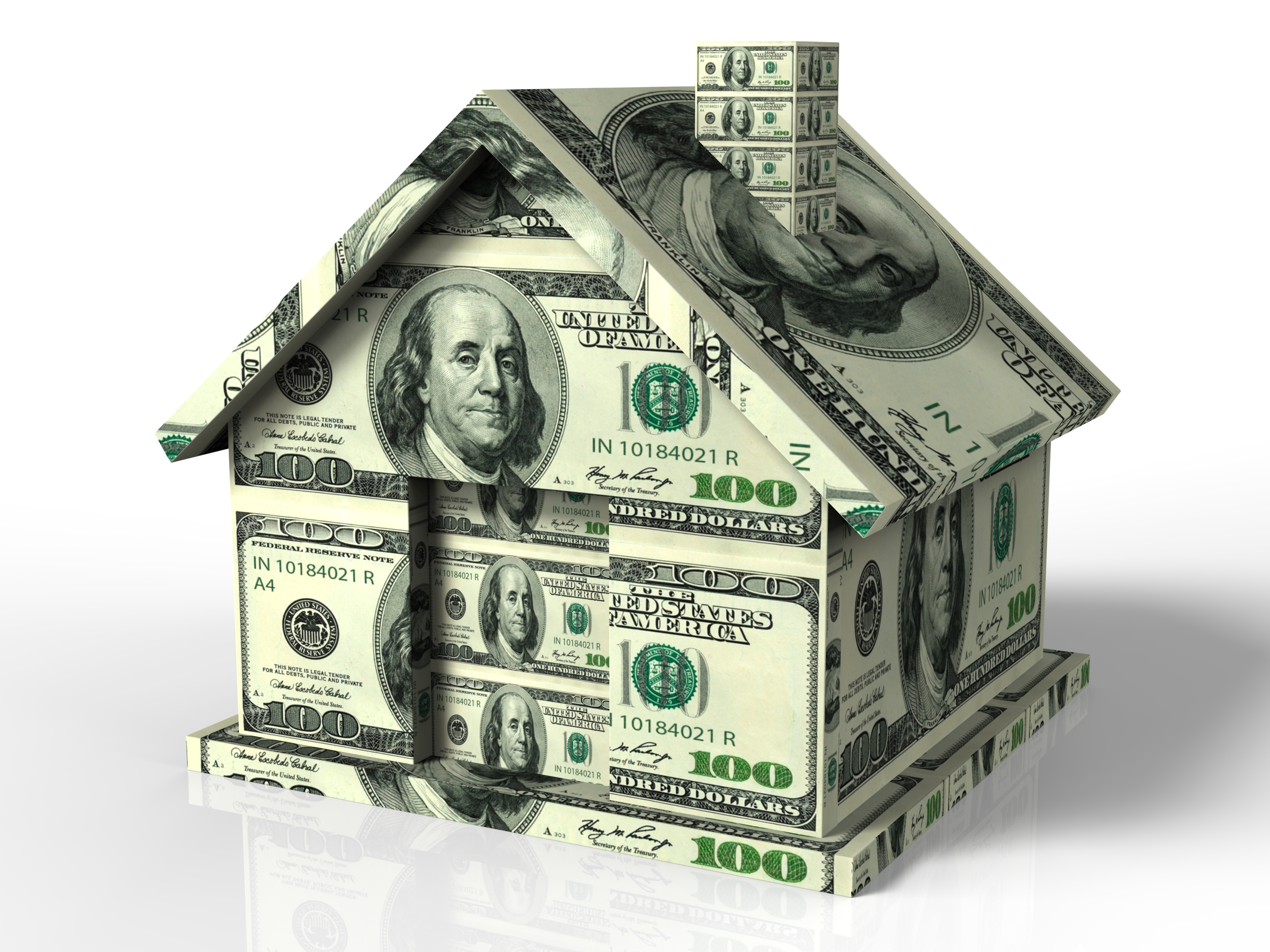
That sticker shock is even more salient in a select set of U.S. cities.
With C2ER's data in hand, we were able to identify the 15 most expensive housing markets in the U.S. So just how costly do the most expensive housing markets in the U.S. get? Take a closer look at the U.S. cities with the highest average home prices.
For comparison's sake, here's a look at the most expensive cities in the U.S., where residents are willing to pay more for everything in exchange for the opportunities the cities offer.
Source: C2ER's Cost of Living Index, 2025 First Quarter Data, published May 2025. Index data is based on average prices of goods and services collected during the first quarter of 2025, with index values based on the new weights from the 2022 US Consumer Expenditure Survey, BLS. Population data, household incomes, home values, poverty rates and other demographic information are from the U.S. Census Bureau.
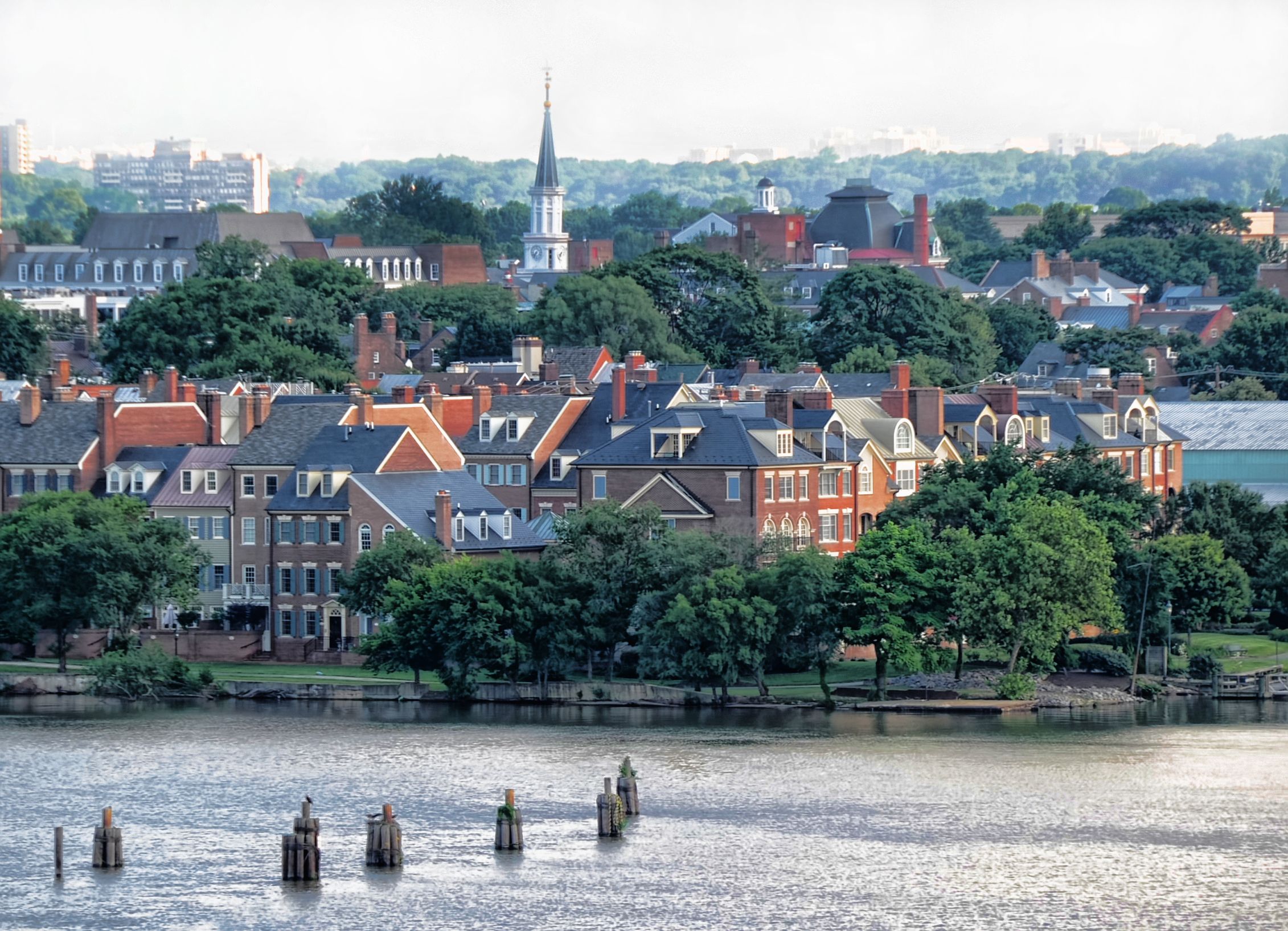
15. Bethesda, Maryland
- City population: 67,403
- Median household income: $114,089
- Average home price: $1,003,738
- Premium to U.S. average: 82.8%
Residents pay a premium to live in this upscale D.C. suburb, which is home to the National Institutes of Health, Walter Reed National Military Medical Center and a number of other prestigious federal government institutions.
As a medical hub, it's perhaps befitting that healthcare costs run about 5.8% lower than the national average in Bethesda. Other major expense categories aren't too bad, either. Utilities are 10.3% more expensive in this D.C. suburb, and transportation is only 3.4% more expensive.
The biggest line item contributing to Bethesda's high cost of living? Not surprisingly, it's housing. Renters and homeowners pay a premium of 82.8% to the national average to keep roofs over their heads.
Maryland has both an inheritance and an estate tax. The gas tax in Maryland jumped from $0.427 to $0.47 per gallon this year and is the fourth highest gas tax in the nation.
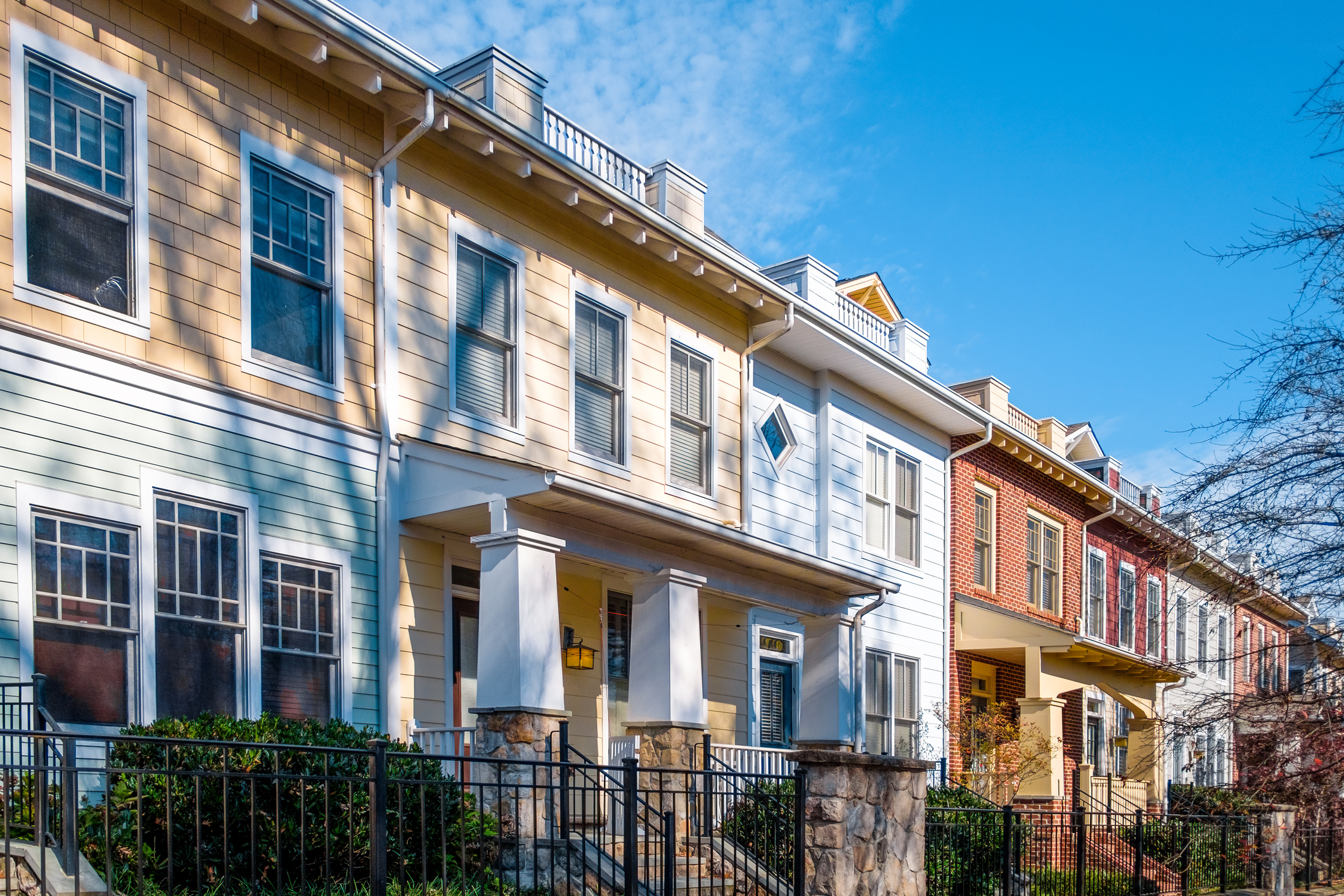
14. Arlington, Virginia
- City population: 234,162
- Median household income: $138,416
- Average home price: $1,012,527
- Premium to U.S. average: 97.5%
Washington, D.C., and its close-in suburbs sport some of the highest living costs in the nation. So it should come as no surprise that Arlington makes the top five for highest home prices on our list.
This suburb, home to the Pentagon and Arlington National Cemetery, sits just across the Potomac River from Washington, D.C. As with its neighbors, Arlington attracts ambitious, well-paid people — and has the home prices to prove it.
Housing-related expenses, including rents and mortgages, are more than twice the national average. Locals can thank an average home price of more than $1 million for much of that financial pain. Average principal and interest payments on mortgages top $4,700 a month in Arlington.
On the plus side for residents, Arlington's median household income of $138,416 is among the highest in the U.S.

13. Seattle, Washington
- City population: 780,995
- Median household income: $121,984
- Average home price: $1,043,265
- Premium to U.S. average: 98.7%
Seattle has long been known for its red-hot housing market, where too little inventory and fierce competition conspired to send home prices skyrocketing for the better part of a decade.
After price growth slowed to 3.11% for the three years through 2024, prices have ticked up 4.38% since the beginning of 2025, according to the S&P 500 CoreLogic Case-Shiller Seattle Home Price NSA Index. But Seattle remains one of the most expensive housing markets in the U.S.
A booming tech scene certainly doesn't help matters. Microsoft (MSFT) and Amazon.com (AMZN) are both based in the Seattle area, as are many smaller high-tech companies.
The bottom line is that Seattle's average home price is almost twice the national average. Overall housing costs — including rents, mortgages and related expenses — are nearly 99% higher than the U.S. mean.
True, Seattle's high median household income helps homeowners get by, but those elevated home prices nevertheless take quite a bite. At least residents can take some comfort in the fact that their utility bills run only 2.2% more than what the typical American pays.
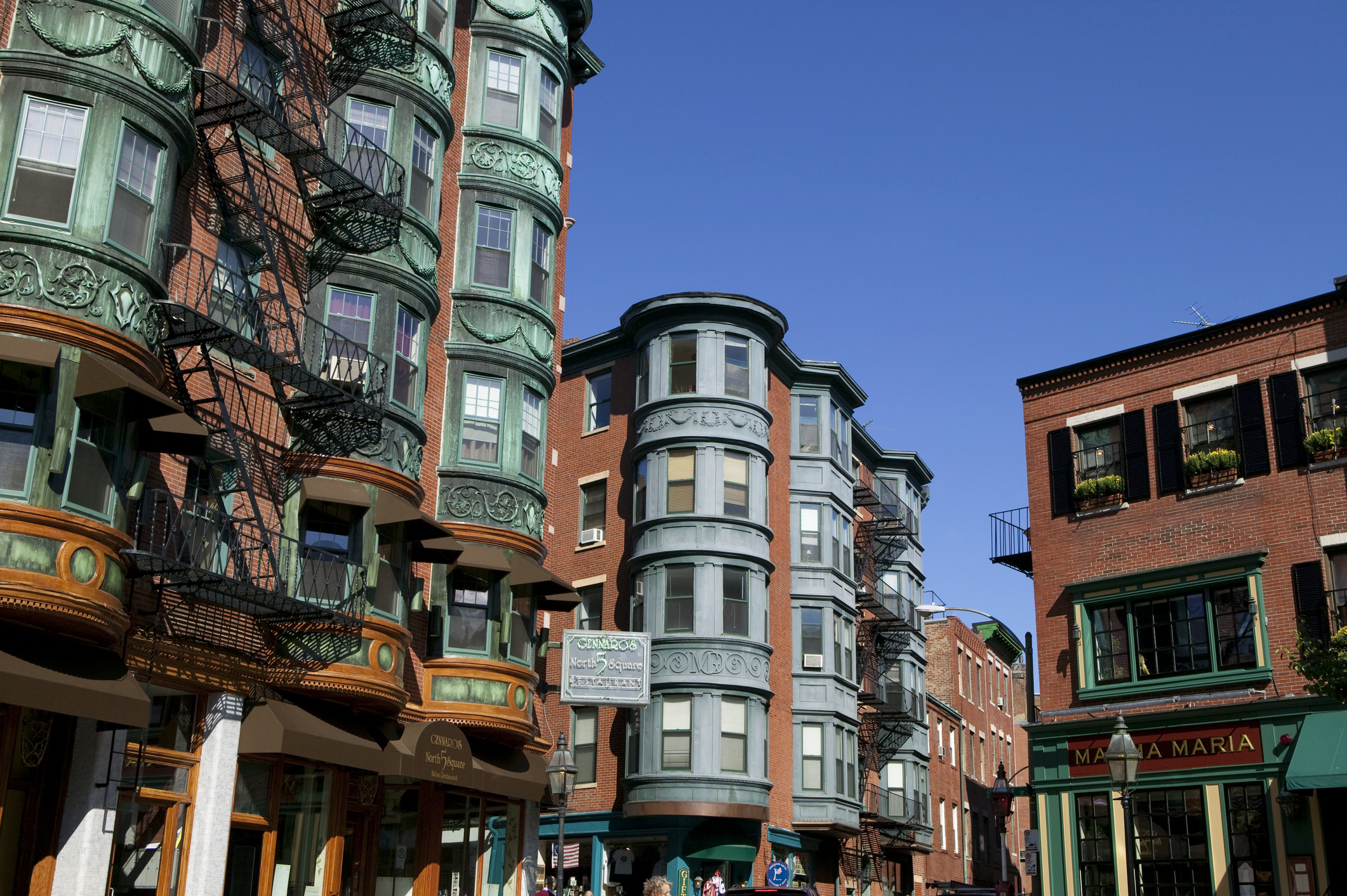
12 Boston, Massachusetts
- City population: 673,458
- Median household income: $96,931
- Average home price: $1,045,430
- Premium to U.S. average: 115%
With its unparalleled collection of universities, hospitals, historical sites, and tech and biotech companies, it's easy to see why Boston is such an appealing place to live.
While there's no question the city's popularity comes at a high cost, it's not nearly as high as some East Coast cities that are often mentioned in the same breath as Boston.
After all, the large group of students, recent grads and young professionals living in the city require a level of affordability to get by while they're starting out. So while the city's overall living costs are over 45% higher than the national average, that's a relative bargain compared to, say, New York City or San Jose.
But as one of the most expensive housing markets in the U.S., putting down roots in Boston is another matter entirely. At $1,045,430, average home prices are almost twice the U.S. average.
Principal and interest payments on mortgages ($4,953 per month) are likewise almost double what the rest of the nation shells out ($2,512 a month). Keeping the lights and heat on is a pricey proposition, too, with utilities running nearly 59% higher than the U.S. mean.
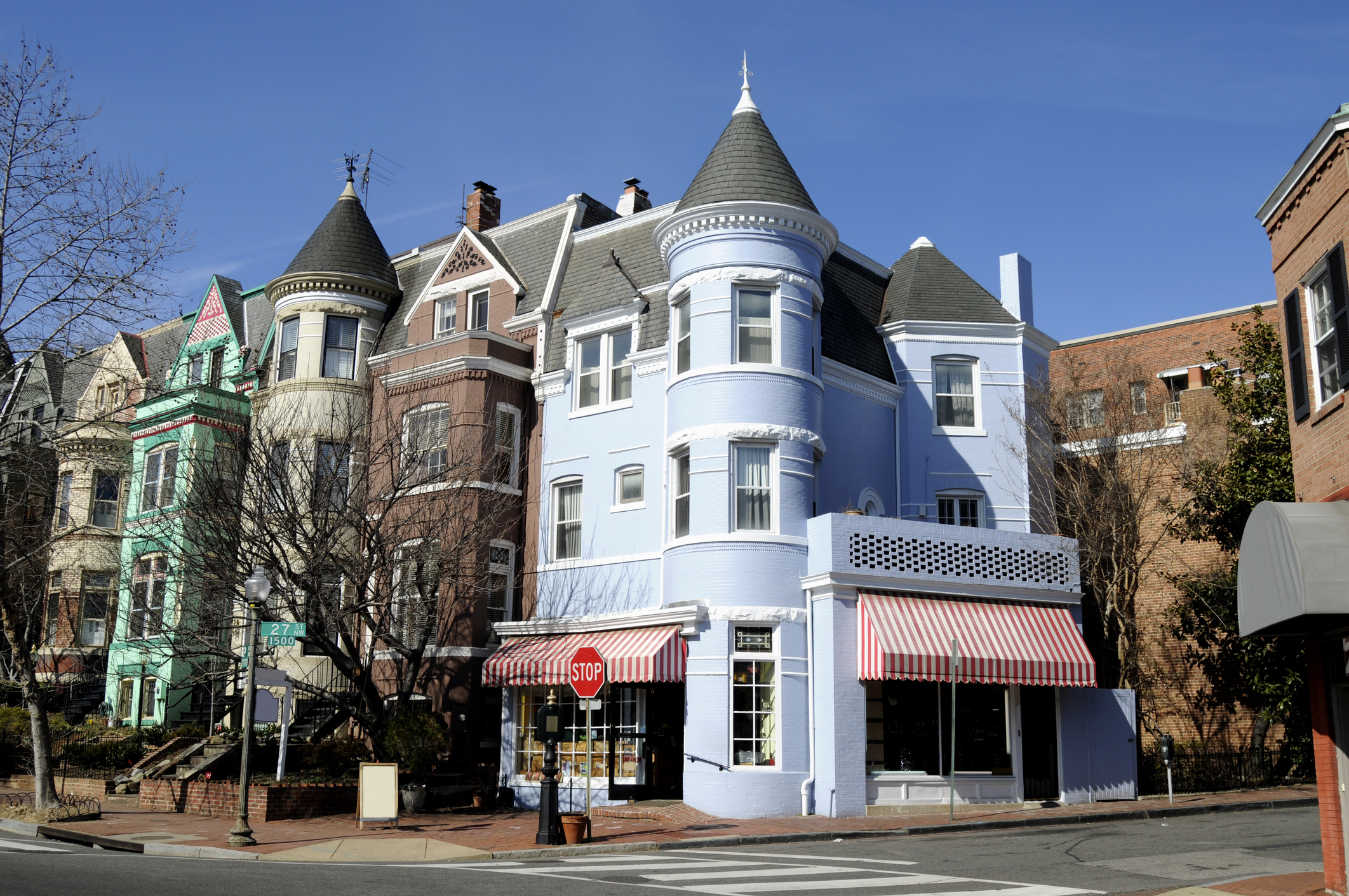
11. Washington, D.C.
- City population: 702,250
- Median household income: $108,210
- Average home price: $1,064,500
- Premium to U.S. average: 100.8%
As pricey as its suburbs might be, the nation's capital tops them all when it comes to the most expensive housing markets in the U.S.
An average home price of $1.06 million makes buying a house in Washington, D.C. almost two times higher than the national average. Comprehensive housing-related costs, including rents, mortgages and insurance, are a burdensome are twice the national average as well, according to C2ER.
Beyond that, however, Washington is something of a tale of two cities when it comes to living costs. Utilities are only 2.5% more expensive., while transportation expenses aren't overly onerous either, at 8% above the U.S. average.
A wide-ranging bus and metro system makes getting to and around the District of Columbia affordable. The DC Circulator bus, for example, costs just $1 and its routes reach popular spots including Georgetown, Union Station and the National Mall.
And, of course, numerous museums and historical sites are free to visit, too.

10. San Diego, California
- City population: 1,404,000
- Median household income: $103,476
- Average home price: $1,157,567
- Premium to U.S. average: 110.3%
San Diego, with its miles of beaches and nearly ideal climate, is paradise for those who love the outdoors. Be it surfing, sailing, hiking, biking, golfing or just exploring Balboa Park, this city on the Pacific has something for everyone.
And for those who prefer more sedentary activities, San Diego offers a world-class zoo, museums, professional sports teams and a wide-ranging restaurant scene.
What's not to like?
Well, for one thing, San Diego has one of the most expensive housing markets in the U.S. At more than $1.1 million, the average home price is more than double the national average. Renters feel the pinch, too, with the average apartment going for $3,127 a month vs the national average of $1,600.
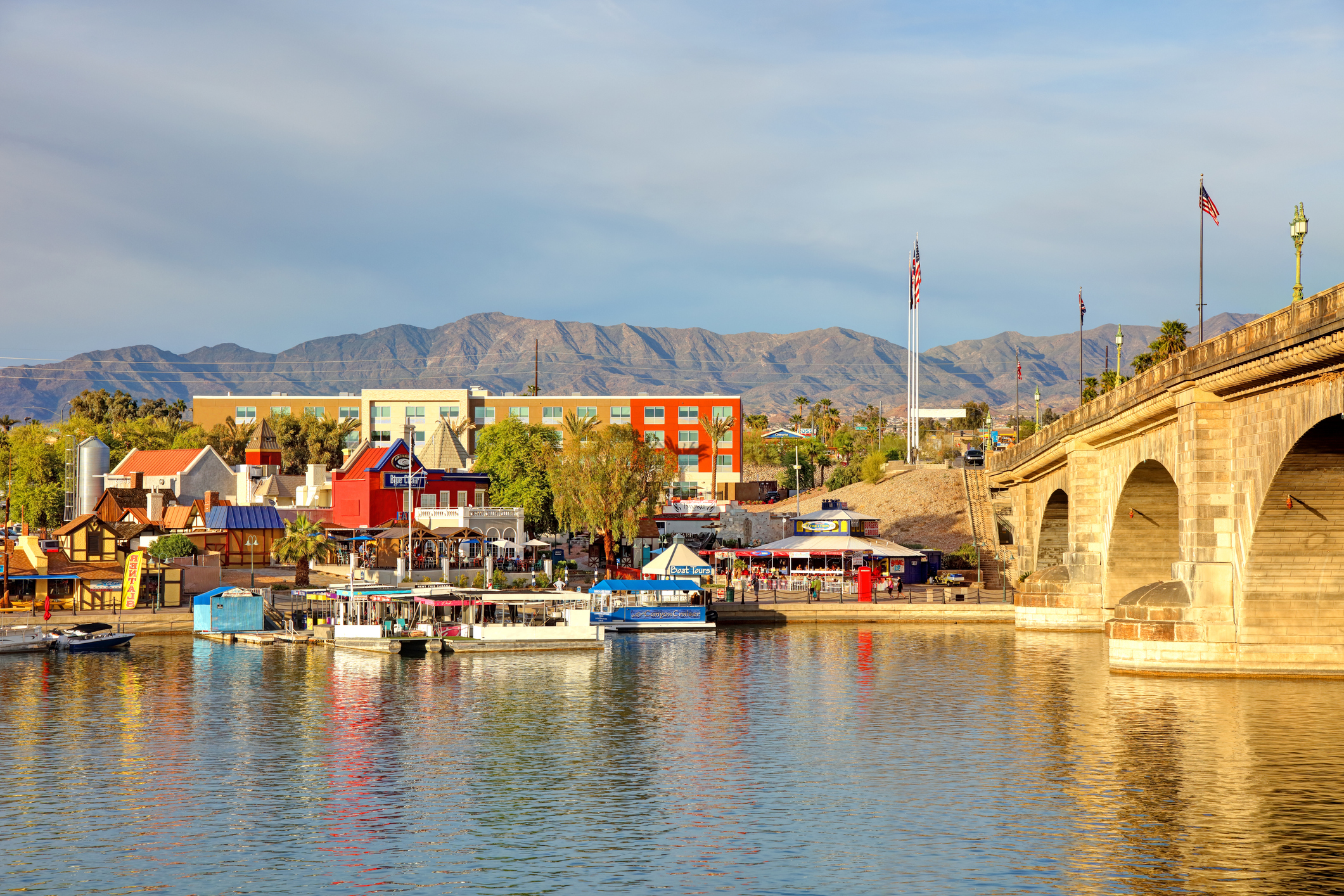
9. Lake Havasu City, Arizona
- City population: 59,037
- Median household income: $66,264
- Average home price: $1,180,212
- Premium to U.S. average: 85.7%
Lake Havasu City, located near the state border with California, about halfway between Phoenix and Los Angeles, bills itself as "Arizona's Playground." The fast-growing city has become a haven for tourists, vacationers and especially retirees — and it has the home prices to prove it.
Indeed, the city, which was founded in 1968 and serves as home to The London Bridge, has one of the most expensive housing markets in the U.S.
With a median age of 55.7, retirees have helped bid up the local housing market to the point where the average home price in Lake Havasu City tops $1.1 million.
It's easy to understand the city's allure for folks looking to enjoy their post-working years. Recreational fishing and boating are one draw, thanks to the city's sprawling lake, which is actually a man-made reservoir. Fine dining, the Grace Arts Live Theatre and classic car shows are just a sampling of the year-round activities on tap.
House prices in Lake Havasu City have been cooling off since the summer of 2022. Over the past decade, however, house prices have stabilized and are down by 2.3% year over year, according to Zillow's Home Values Index.
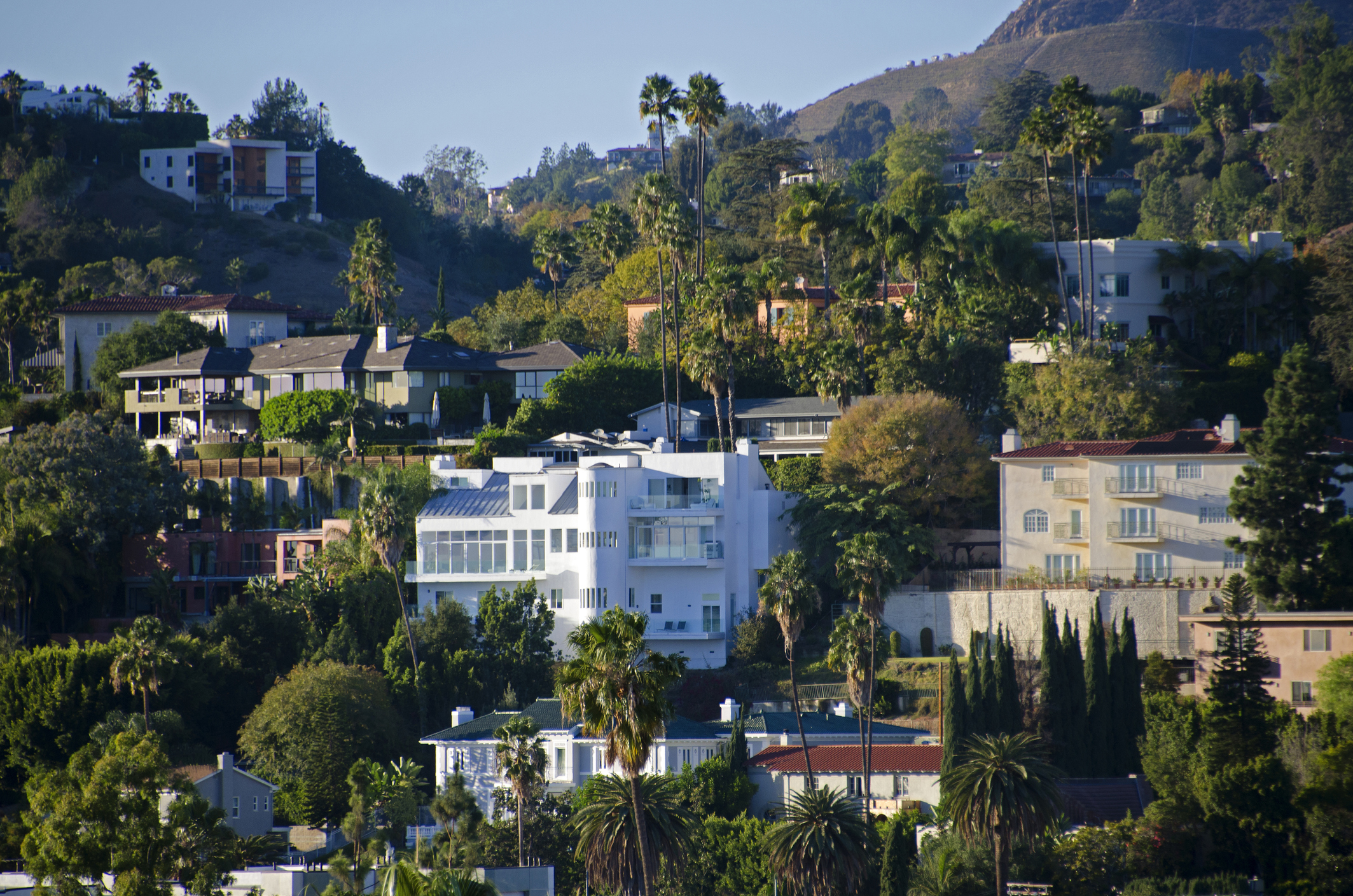
8. Los Angeles, California
- City population: 3,879,000
- Median household income: $86,499
- Average home price: $1,348,792
- Premium to U.S. average: 131.9%
Few cities can top Los Angeles for excess and glamor, but most of its residents don't work in Hollywood or shop on Rodeo Drive. While high living expenses make L.A. one of the most expensive U.S. cities, median annual incomes are $909 lower than the national average.
Home prices — and overall housing costs — are the main culprits when it comes to L.A.'s comparative lack of affordability. As is the case with many other cities on this list, the area's average home price is skewed by the dwellings of so many high- and ultra-high net worth residents.
Regardless, Los Angeles' average home price of $1.34 million offers a premium of 2.53 times the national average. LA home prices have increased more than 2% over the past three years, per the S&P CoreLogic Case-Shiller Los Angeles Home Price NSA Index.
As one would expect, renting is also rough on the wallet. Apartment rents, on average, are 87.5% more expensive than the U.S. average. That's a far cry from the big cities with the cheapest apartment rents. On the plus side, utilities are 7.6% less expensive in the City of Angels.
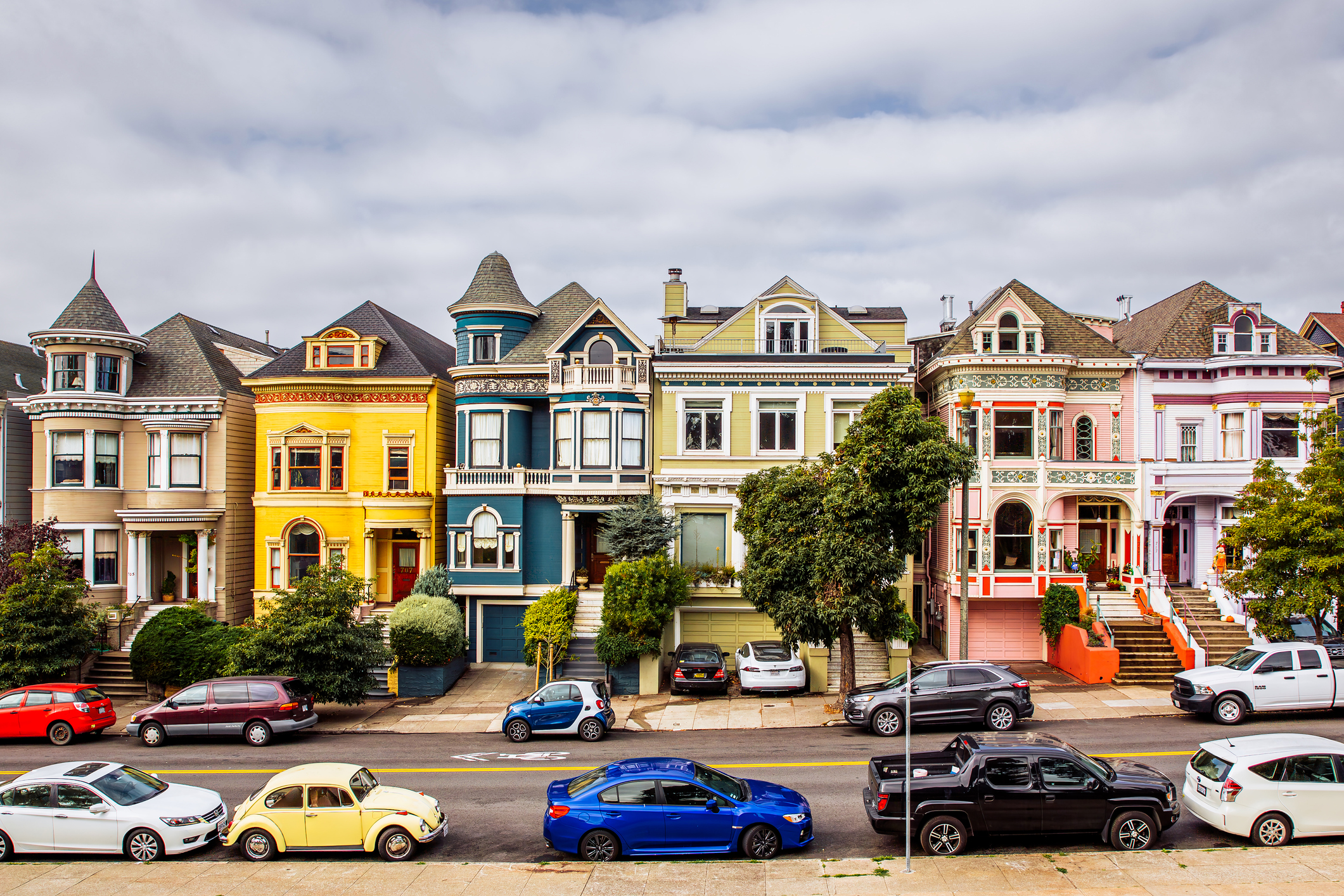
7. San Francisco, California
- City population: 827,526
- Median household income: $125,456
- Average home price: $1,375,284
- Premium to U.S. average: 151.4%
Years of relentless growth driven by high-paid tech workers have given San Francisco one of the most expensive housing markets in the U.S. Even those residents who bring home fat paychecks can struggle to make ends meet.
Houses are famously expensive — an obstacle for aspiring homeowners. The average home price is a staggering $1.37 million in San Francisco, according to C2ER.
Let's pause on that for a moment: Half of the city's homes cost more than $1.3 million.
At $6,502 a month, average principal and interest payments on mortgages are the seventh-highest in the U.S. — or 2.59 times what the typical American pays.
Renters don't fare much better. The average rent for an apartment in San Francisco is $3,761 a month. That's 2.35 times the national average. Total housing costs, including rents, mortgages and related expenses, are more than 2.5 times the national average, too.
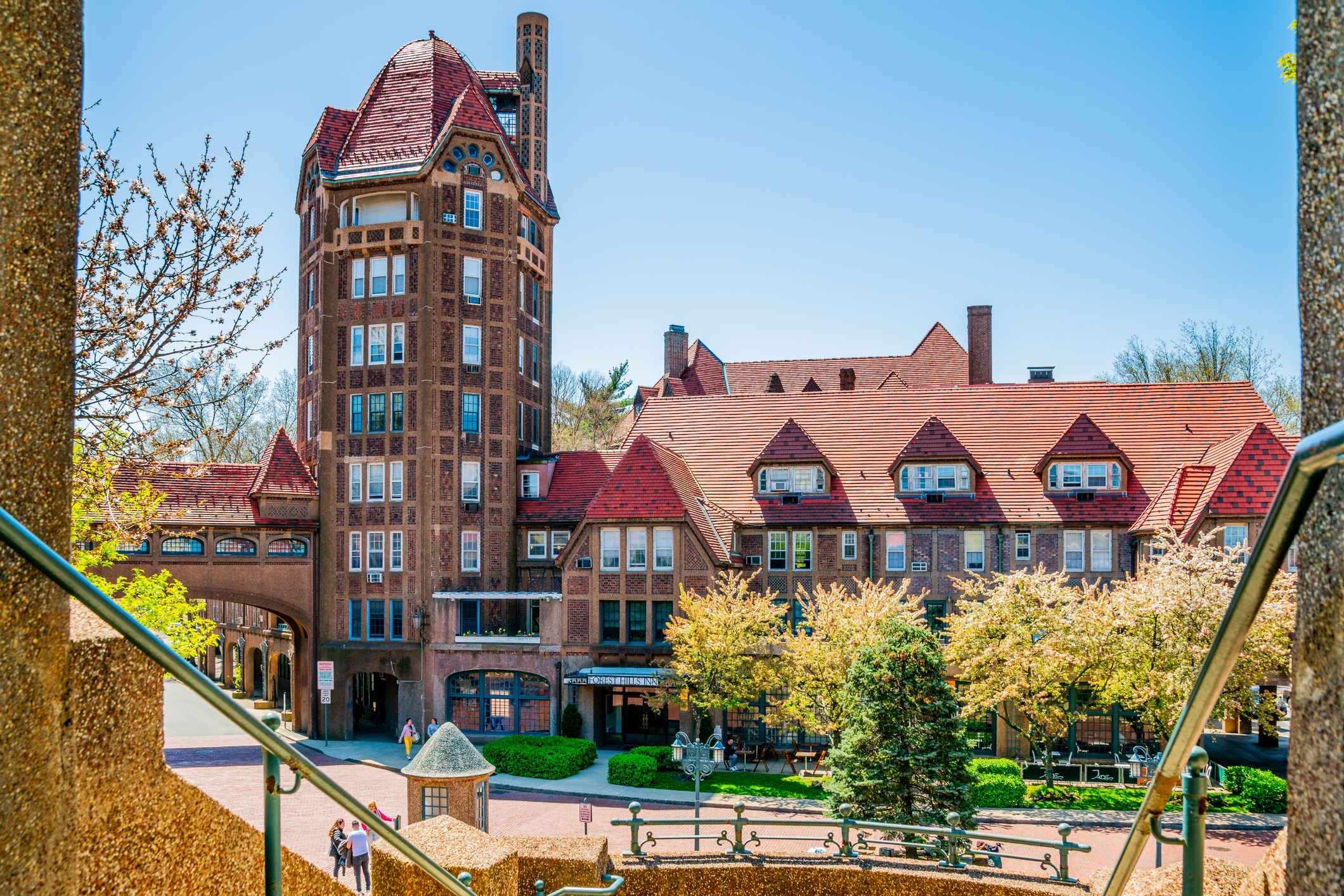
6. Queens, New York
- Borough population: 2,330,000
- Median household income: $81,929
- Average home price: $1,427,978
- Premium to U.S. average: 159.2%
New Yorkers priced out of Manhattan used to move to Brooklyn. But now Brooklyn is no longer a bargain either, and that has folks flocking to Queens.
Not that it's much of a refuge. This NYC borough has one of the most expensive housing markets in the U.S.
Once best known for Archie Bunker and the New York Mets, Queens is becoming trendier by the day — and prices are following suit. The average home price is slightly more than $1.4 million, or nearly three times the national average.
It should come as no surprise that housing-related costs are also 159.2% greater than the U.S. average. After all, the mean monthly apartment rent comes to $3,747 vs $1,600 a month nationally. And the average mortgage carries a principal and interest-rate payment of $6,798 per month vs $2,512 across the U.S.
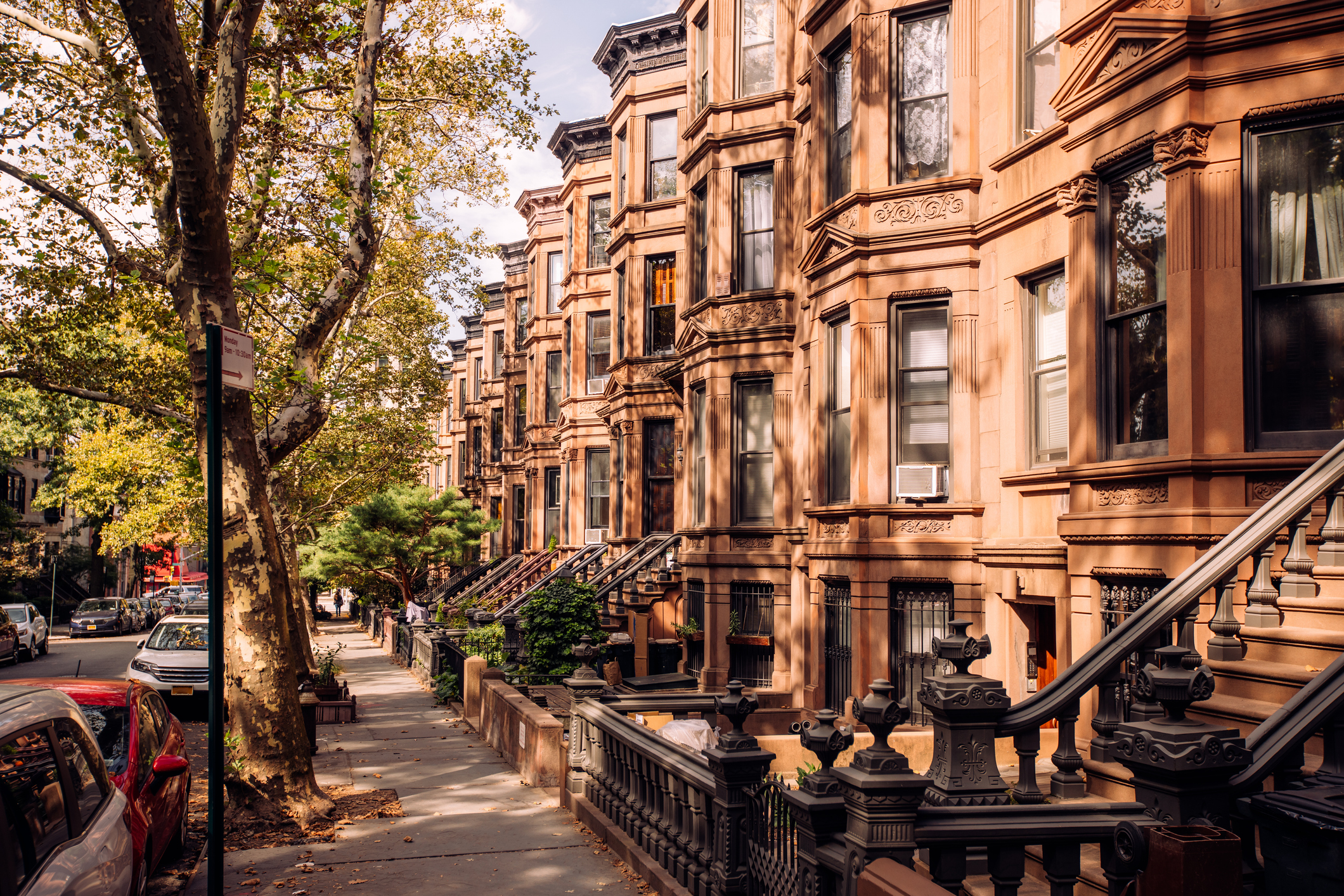
5. Brooklyn, New York
- Borough population: 2,646,000
- Median household income: $76,912
- Average home price: $1,452,667
- Premium to U.S. average: 186.4%
Technically, Brooklyn is one of the five boroughs that make up New York City, but in recent decades it has emerged as something of a metropolis unto itself. Indeed, if Brooklyn were an independent city, its population would be on par with Chicago, the third-largest city in the nation.
Once upon a time, Brooklyn was considered a viable alternative for those who couldn't afford to live in Manhattan. Those days are long gone. Housing-related expenses including rents and mortgages are almost triple the national average.
And the average home price? Fuggedaboutit. At $1.45 million, Brooklyn homes cost almost 2.73 times the national average. Brooklyn is a sprawling borough, where the ultra-high-net-worth residents of, say, Brooklyn Heights, help skew its average home price upward.

4. Honolulu, Hawaii
- City population: 350,964
- Median household income: $102,382
- Average home price: $1,608,698
- Premium to U.S. average: 192.1%
To enjoy the perks of living in such a remote Pacific paradise, Honolulu residents pay more than they would on the mainland for pretty much everything — and it's not hard to understand why. Most goods sold in Hawaii must arrive either by boat or by plane, which jacks up the price considerably.
Honolulu's average home price is double the national average. Meanwhile, average monthly principal and interest payments on mortgages come to $7,378. That's 1.9 times the national average of $2,512.
Renters face a similar dilemma. The average apartment lease goes for $4,615 per month in Honolulu, vs a national average of $1,600.
And Honolulu's elevated living costs hardly end with housing prices. The city reports the highest utility bills of all 251 urban areas surveyed by C2ER.

3. Orange County, California
- County population: 3,170,000
- Median household income: $110,042
- Average home price: $1,634,993
- Premium to U.S. average: 169.3%
Although not properly a city itself, we include Orange County on this list because it comprises several large municipalities. Known as The O.C. for short, the county is synonymous with wealth — so much so that there was an entire TV series made about it in the 2000s.
Several large municipalities make up the county, which abuts Los Angeles to the southeast, including Anaheim, Santa Ana and Irvine. But it's the smaller, tonier enclaves such as Newport Beach (median home value: $2 million) that cement Orange County's reputation for sheltering some of Southern California's richest and most famous.
In fact, the average home price for all of Orange County sits at over $1.6 million according to C2ER. That makes it the fifth priciest market in the country — and easily one of the most expensive housing markets in the U.S.
At $3,073 a month, apartment rents are nearly twice the national average of $1,600. All in all, housing in the O.C. costs 269.3% more than what the typical American pays. On the other side of the ledger, healthcare costs are 2.4% lower than the national average.
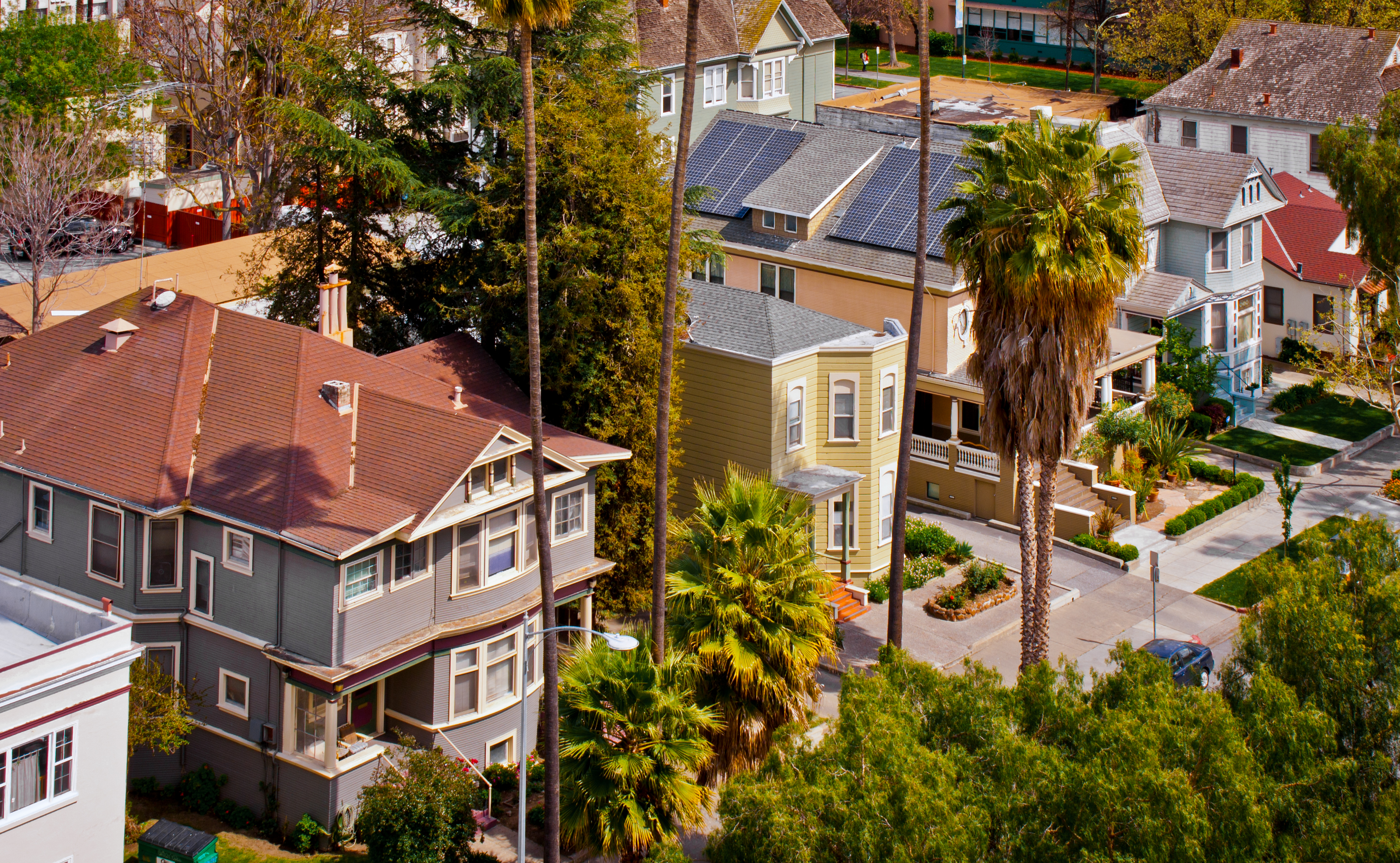
2. San Jose, California
- City population: 997,368
- Median household income: $153,202
- Average home price: $1,945,454
- Premium to U.S. average: 226.6%
San Jose is at the epicenter of tech development in America and hosts major facilities for many companies including Hewlett Packard Enterprise, IBM, Lockheed Martin, Qualcomm and the North American headquarters of Samsung Semiconductor
The abundance of high-paying jobs is necessary if you want to live and work in the area. The typical household income in San Jose is $153,202 and that is twice the average of $80,610.
Housing costs are over 265% higher than the national average and the mean price of a home is $1,945,454. The cost of heating and cooling your home, as well as charging your EV, is in line with housing prices and is 46% higher than average. Although it is cheaper than neighboring San Francisco, where the costs are 52.7% above the norm.
The biggest line item contributing to San Jose's high cost of living? Not surprisingly, it's housing. Renters and homeowners pay a premium of 326.6% to the national average to keep roofs over their heads.

1. Manhattan, New York
- Borough population: 1,628,000
- Median household income: $101,078
- Average home price: $3,025,267
- Premium to U.S. average: 404.6%
No place beats the center of the Big Apple when it comes to being the most expensive housing market in the U.S.
With space at a premium and location paramount, the average price of a home in Manhattan is $3,025,267, or 4.7 times higher than the national average. Heck, the average home price in Manhattan is three times higher than what you find in Bethesda, and 55% greater than what San Jose has on offer.
Average monthly principal and interest rate payments on mortgages stand at $14,401, which absolutely blows away every other city in the U.S. (San Jose comes in second at $9,662, while the national average is $2,512). Average rent in Manhattan comes to $5,654 a month, which is also far and away the highest of any American city.
The bottom line? Manhattan residents spend nearly five times the national average for housing.
Profit and prosper with the best of Kiplinger's advice on investing, taxes, retirement, personal finance and much more. Delivered daily. Enter your email in the box and click Sign Me Up.

Dan Burrows is Kiplinger's senior investing writer, having joined the publication full time in 2016.
A long-time financial journalist, Dan is a veteran of MarketWatch, CBS MoneyWatch, SmartMoney, InvestorPlace, DailyFinance and other tier 1 national publications. He has written for The Wall Street Journal, Bloomberg and Consumer Reports and his stories have appeared in the New York Daily News, the San Jose Mercury News and Investor's Business Daily, among many other outlets. As a senior writer at AOL's DailyFinance, Dan reported market news from the floor of the New York Stock Exchange.
Once upon a time – before his days as a financial reporter and assistant financial editor at legendary fashion trade paper Women's Wear Daily – Dan worked for Spy magazine, scribbled away at Time Inc. and contributed to Maxim magazine back when lad mags were a thing. He's also written for Esquire magazine's Dubious Achievements Awards.
In his current role at Kiplinger, Dan writes about markets and macroeconomics.
Dan holds a bachelor's degree from Oberlin College and a master's degree from Columbia University.
Disclosure: Dan does not trade individual stocks or securities. He is eternally long the U.S equity market, primarily through tax-advantaged accounts.
- Rachael GreenPersonal finance eCommerce writer
- Donna LeValleyRetirement Writer
-
 Ask the Tax Editor: Federal Income Tax Deductions
Ask the Tax Editor: Federal Income Tax DeductionsAsk the Editor In this week's Ask the Editor Q&A, Joy Taylor answers questions on federal income tax deductions
-
 States With No-Fault Car Insurance Laws (and How No-Fault Car Insurance Works)
States With No-Fault Car Insurance Laws (and How No-Fault Car Insurance Works)A breakdown of the confusing rules around no-fault car insurance in every state where it exists.
-
 Why Picking a Retirement Age Feels Impossible (and How to Finally Decide)
Why Picking a Retirement Age Feels Impossible (and How to Finally Decide)Struggling with picking a date? Experts explain how to get out of your head and retire on your own terms.
-
 We're 62 With $1.4 Million. I Want to Sell Our Beach House to Retire Now, But My Wife Wants to Keep It and Work Until 70.
We're 62 With $1.4 Million. I Want to Sell Our Beach House to Retire Now, But My Wife Wants to Keep It and Work Until 70.I want to sell the $610K vacation home and retire now, but my wife envisions a beach retirement in 8 years. We asked financial advisers to weigh in.
-
 We Inherited $250K: I Want a Second Home, but My Wife Wants to Save for Our Kids' College.
We Inherited $250K: I Want a Second Home, but My Wife Wants to Save for Our Kids' College.He wants a vacation home, but she wants a 529 plan for the kids. Who's right? The experts weigh in.
-
 2026's Tax Trifecta: The Rural OZ Bonus and Your Month-by-Month Execution Calendar
2026's Tax Trifecta: The Rural OZ Bonus and Your Month-by-Month Execution CalendarReal estate investors can triple their tax step-up with rural opportunity zones this year. This month-by-month action plan will ensure you meet the deadlines.
-
 Have You Aligned Your Tax Strategy With These 5 OBBBA Changes?
Have You Aligned Your Tax Strategy With These 5 OBBBA Changes?Individuals and businesses should work closely with their financial advisers to refine tax strategies this season in light of these five OBBBA changes.
-
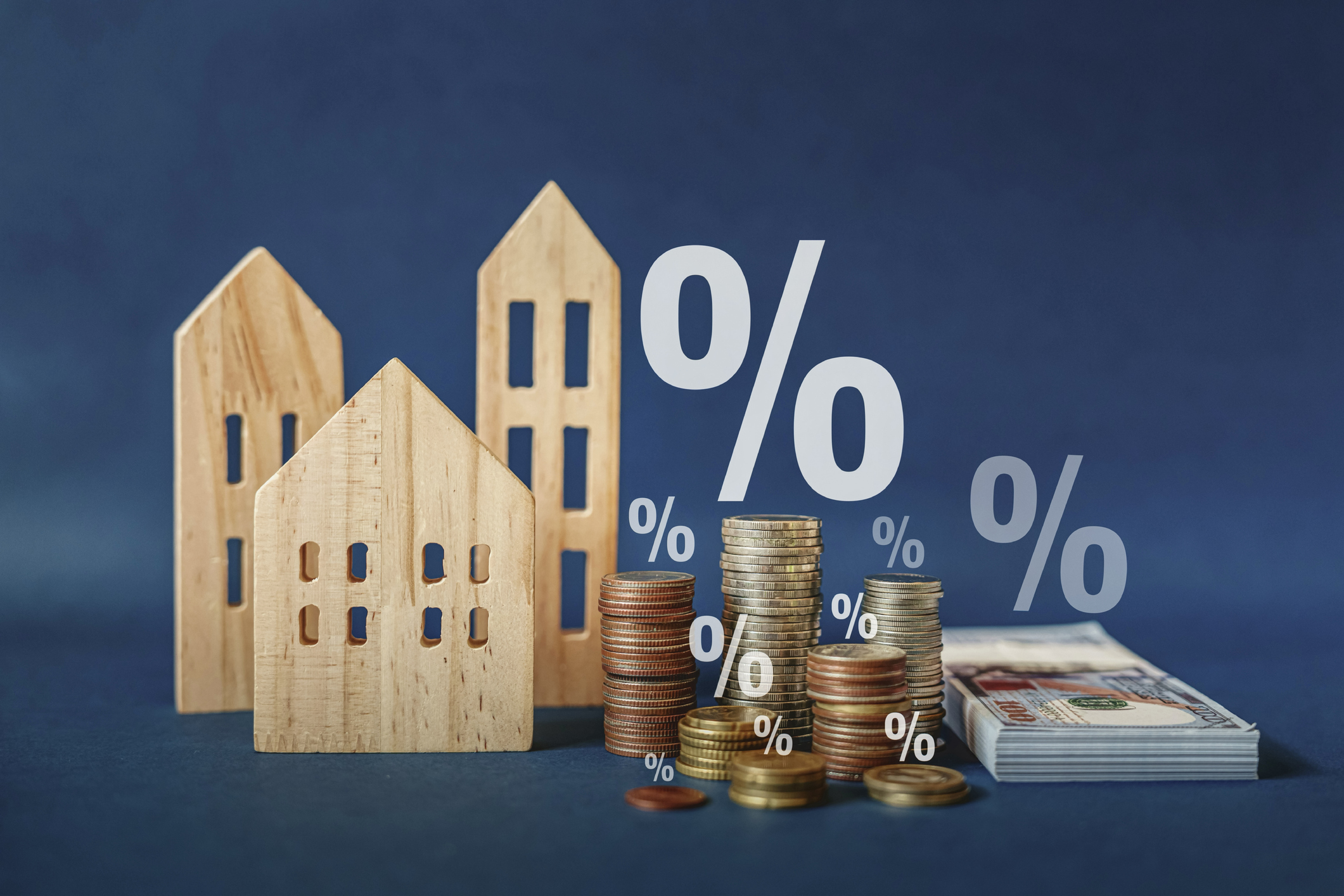 Is the Housing Market's 'Lock-In Effect' Finally Starting to Ease?
Is the Housing Market's 'Lock-In Effect' Finally Starting to Ease?As mortgage rates stabilize and fewer owners hold ultra-low loans, the lock-in effect may be losing its grip.
-
 How to Find the Best International Moving Company for Your Big Move Abroad (and Avoid Costly Mistakes)
How to Find the Best International Moving Company for Your Big Move Abroad (and Avoid Costly Mistakes)It's best to use an international moving company to protect your belongings and budget when relocating to another country. Here's how to find a reputable firm.
-
 What to Ask a Contractor Before a Renovation
What to Ask a Contractor Before a RenovationHomeowners should ask these essential questions before hiring a contractor to avoid surprises, protect their investment and keep projects on time and on budget.
-
 I'm 61 and Want a Divorce, but I Worry About My Finances. Should We Live Separately but Stay Married?
I'm 61 and Want a Divorce, but I Worry About My Finances. Should We Live Separately but Stay Married?We asked Certified Divorce Financial Analysts for advice.
